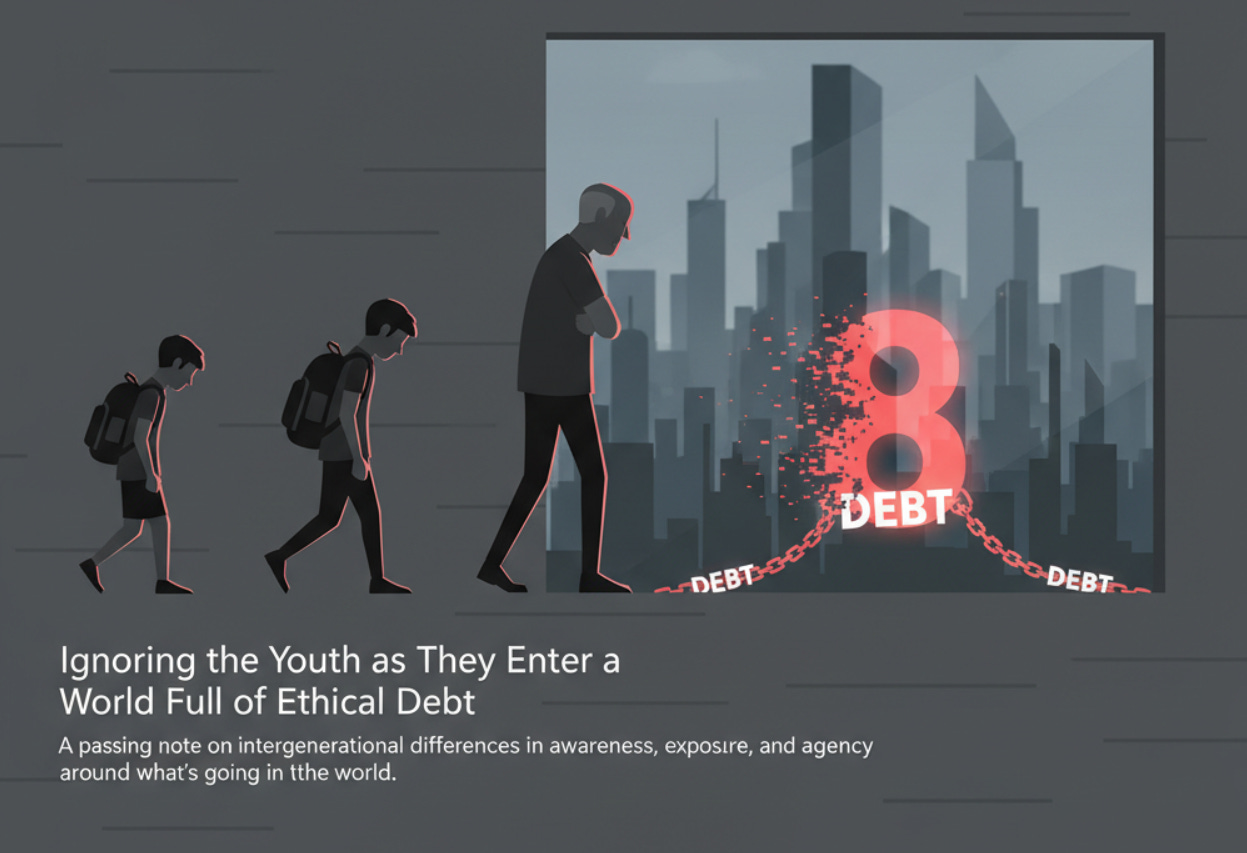Ignoring the youth as they enter a world full of ethical debt
A passing note on intergenerational differences in awareness, exposure, and agency around what's going on in the world.
The Problem Space is a collection of posts around lightweight observations, reactions, and opinions that center issues impacting work, tech development, teaching, and the general cultivation of those building the future.
The younger generation that has access, agency and ambition is undeniably hopeful, and I’m fortunate to work with so many.
But the kids are particularly wary about the moral duplicity (or abyss) they see played out every day*. I don’t think older generations can interface very well about this
Have you ever been around grandparents or elders who were asking something of children they couldn’t understand? Or, that a child points out something that is real or a concern, but is casually dismissed by an adult?
There is a generational gaslighting at hand, because of the partiality of what is going on. Mom says one thing dad says another. Who do you believe?
This is the space that needs tending.
* Important note: I think there is a massive gap in understanding the “seeing it every day” aspect is not about being radicalized or extremified to a particular conventional PoV. It’s the access and exposure that no generation has ever formatively had to deal with. It’s not heresay, or whispers, or “it must suck to be those folks”, it is 4K footage of what that person experienced.
There is a leeriness about trusting things that don’t fit this reality-exposure, and it is useful to consider for mentors, teachers, and the “adults” of society, that the questioning and skepticism is warranted.
Moral legitimacy is not going to be a debt1 that is easily paid, and we — at a social, societal level — are particularly unable to sense or interpret the ill-effects of its accumulation. (In this country) there is a particular demonstrative amorality or flimsiness that extends from politics to those (with platforms and voices) speaking from the technologists and futurists; everyone is sitting on their hands2.
This is the environment we are building in, “philosopher-builders” or otherwise.
How are you observing, or attending to this gap in your role as an educator, collaborator or supervisor?
Or as the administration has said numerous times, in 2017 there was contention and disagreement, and in 2025 it is camaraderie and appeasement. This isn’t a commentary on how the administration should be met, but rather a social inquiry on what is incentivizing this change of tide.
As always, views my own | Edit your subscriptions here


